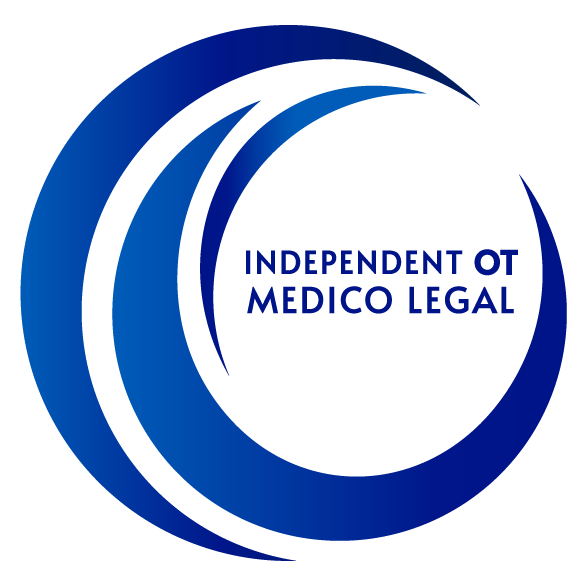
Psychological injuries are usually sustained following a traumatic event (such as a motor vehicle or workplace accident); or from the cumulative impact of a series of events such as with workplace bullying or historical abuse.
Common psychological injuries may include post traumatic stress disorder (PTSD), depression, anxiety and/ or adjustment disorder which can all have a significant impact on a person’s ability to engage in daily tasks including self-care, home management, leisure and work due to the impact that the injuries can have on an individual’s cognition and ability to initiate tasks.
The prevalence of cognitive problems in individuals with depression has been reported to be as high as 85-94% 1 with the most commonly reported deficits including reduced attention, executive functions, memory, and processing speed2, 3. Lack of motivation is also a highly prevalent symptom in populations of people suffering with depression, anxiety and/or PTSD 4.
Since 2018, sufferers of child sexual abuse or institutional abuse have been able to seek support, education and guidance through the National Redress Scheme, and some may pursue compensation through personal injury claims.
For other forms of psychological injury resulting from motor vehicle accident or workplace accident; medical negligence; or from repetitive events such as for bullying or complex PTSD, a person may be able to claim compensation through other organisations such as Workers Compensation, Compulsory Third Party (CTP) etc.
(1) Conradi, H., Ormel, J., & De Jonge, P. (2011). Presence of individual (residual) symptoms during depressive episodes and periods of remission: A 3-year prospective study. Psychological Medicine, 41(6), 1165-1174.
(2) McIntyre RS, Xiao HX, Syeda K, et al. The prevalence, measurement, and treatment of the cognitive dimension/domain in major depressive disorder. CNS Drugs. 2015;29(7):577–589; and Millan MJ, Agid Y, Brüne M, et al.
(3) Cognitive dysfunction in psychiatric disorders: characteristics, causes and the quest for improved therapy. Nat Rev Drug Discov. 2012;11(2):141–168)
(4)Katherine A. L. Sherratt & Andrew K. MacLeod (2013) underlying motivation in the approach and avoidance goals of depressed and non-depressed individuals, Cognition and Emotion, 27:8, 1432-1440, DOI: 10.1080/02699931.2013.786680)
Types of Psychological Injuries
There are a number of psychiatric diagnoses that can develop as a result of a previous traumatic event or series of events. Independent OT Medico Legal has provided numerous reports for people with psychological injuries with the most commonly observed diagnoses being Post Traumatic Stress Disorder, Major Depressive Disorder and Generalised Anxiety Disorder.
Post Traumatic Stress Disorder (PTSD), or Complex Post Traumatic Stress Disorder (C-PTSD)
Post-traumatic stress disorder (PTSD) and complex PTSD (C-PTSD) are mental health conditions that have some similarities.
Both PTSD and C-PTSD result from trauma and have some of the same symptoms and treatment options, however, the two conditions have different causes. In simple terms PTSD is experienced following a single traumatic event, whilst C-PTSD can develop as the result of prolonged or repeated trauma, such as institutional abuse.
Generalised Anxiety Disorder (with or without Panic Attacks)
Generalised Anxiety Disorder (with or without Panic Attacks) is a mental health disorder that produces fear, worry, and the constant feeling of being overwhelmed. It is characterised by excessive, persistent, and unrealistic worry about everyday things1.
Major Depressive Disorder (Depression)
Major Depressive Disorder or Clinical Depression is a mood disorder that causes a persistent feeling of sadness and loss of interest in previously enjoyed activities. Clinical Depression can impact the way a person thinks, feels and also moves. It can result in physical restlessness and agitation, or slowed speech and body movement (known as psychomotor retardation). Depression can also impact a person’s ability to concentrate, make decisions, and initiate tasks. Physical and cognitive fatigue are also common symptoms for a person suffering with clinical depression.
[1] Munir S, Takov V. Generalized Anxiety Disorder. [Updated 2022 Oct 17]. In: StatPearls [Internet]. Treasure Island (FL): StatPearls Publishing; 2023 Jan-. Available from: https://www.ncbi.nlm.nih.gov/books/NBK441870/
Why Are Occupational Therapy Reports Important in Psychological Injury Cases?
Every individual’s experience of a psychological injury is different, and the impact that each psychological diagnosis may have on a person’s life will vary greatly between individuals. Commonly there may also be two or more psychological diagnoses as a result of a person’s injury, abuse or other trauma, which further adds to the complexities of their functional presentation.
Many people have suffered some level of trauma in their lifetime, however, for some people the ongoing impact of the traumatic event(s) and the subsequent psychological injuries incurred, inhibits their ability to function in day-to-day life. The impact of this trauma can continue for years or decades following the subject event or subject period of time.
The role of an occupational therapy report is to clearly define the level of functional impact of an injury, and to determine what therapy or other rehabilitation may be required to reduce this functional impact. If rehabilitation is considered unlikely to significantly change the level of disability, then an occupational therapy report will detail the level of care or support required to assist the person to engage in activities of daily living to their maximum ability. Participation in daily life includes the areas of personal care, domestic tasks, work, leisure, social participation and community integration.
Data Collection and Documentation
As part of each Independent OT Medico Legal assessment, we conduct comprehensive evaluations by way of clinical interviews, clinical observations and paper-based assessments to identify and define the functional impact of a claimant’s psychological injury(s) across all the domains of daily life.
Our occupational therapy specialists will also carefully examine the medical evidence, which may include medical and psychiatric records, in order to develop an understanding of the psychological testing that has been undertaken, and relevant treatment recommendations made by their psychiatry or psychology clinicians. This assists to determine what gains might be achievable through future rehabilitation, and what issues will likely persist in the longer term.


Psychological and Physical Assessment
Independent OT Medico Legal occupational therapists have extensive clinical experience and expertise in working with people who have suffered psychological injuries and will work to establish a rapport with each person before embarking on any in-depth clinical interviews. All our occupational therapists are trauma informed and whilst our role requires detailed discussion and assessment, the individual’s mental health is always considered throughout the assessment process. This is essential to our practice as it allows the person to relax, feel safe, and discuss the full impact of their psychological injuries in sufficient detail so that we can make a comprehensive evaluation.
We encourage the presence of a support person in all assessments, for both the provision of emotional support for the person being assessed, and to also provide additional information. As cognition can often be impacted by a severe psychological injury, issues with memory and recall of events can be factors to consider when gathering a full understanding of a person’s issues in day-to-day life.
Expert Testimonies and Court Presentation
If a compensation claim is not settled prior, we will give expert evidence to assist the court to understand the functional impact of the psychological injury so that an informed decision can be made.

Frequently Asked Questions
Yes. Our psychological injury reports are often used in workers’ compensation claims for injuries caused by workplace accidents, bullying, or other cumulative traumatic events. We also prepare reports for claims involving Compulsory Third Party (CTP) schemes, motor vehicle accidents, and other incidents.
The typical timeline for completing a psychological injury medico legal report can vary depending on the complexity of the case and the availability of supporting medical documentation. Generally, reports are finalised 6 weeks after the assessment.
Yes. Our assessments cover a wide range of psychological injuries, including those caused by motor vehicle accidents, personal trauma, historical or institutional abuse, and medical negligence, not just work-related incidents.
Yes. We offer independent second opinions if you need further assessment or validation of a previously completed psychological injury report.
Our occupational therapists are highly experienced, trauma-informed professionals with expertise in medico-legal assessments. Each therapist holds a degree in occupational therapy and has extensive clinical experience working with individuals suffering from psychological injuries, including PTSD, anxiety, and depression.
Yes. Confidentiality is a core part of our practice. All assessments are conducted with the utmost care to protect the individual’s privacy and ensure a safe, supportive environment. The report will be peer reviewed by a member of our clinical team to ensure accuracy, though no other members of the team will have access to the report. All documentation and records are securely stored.
Yes. We understand that psychological injuries can evolve over time. If a claimant’s condition changes, we are available to conduct follow-up assessments to ensure that our recommendations reflect the individual’s current and future needs.

Contact Us for Psychological Injury Medico Legal Reports
Need an expert Psychological Injury medico legal report? Our experienced occupational therapists provide detailed, impartial assessments.
Reach out today to book an assessment, call for a consultation, or email us your inquiry—we’re ready to assist you in achieving fair and accurate outcomes.
